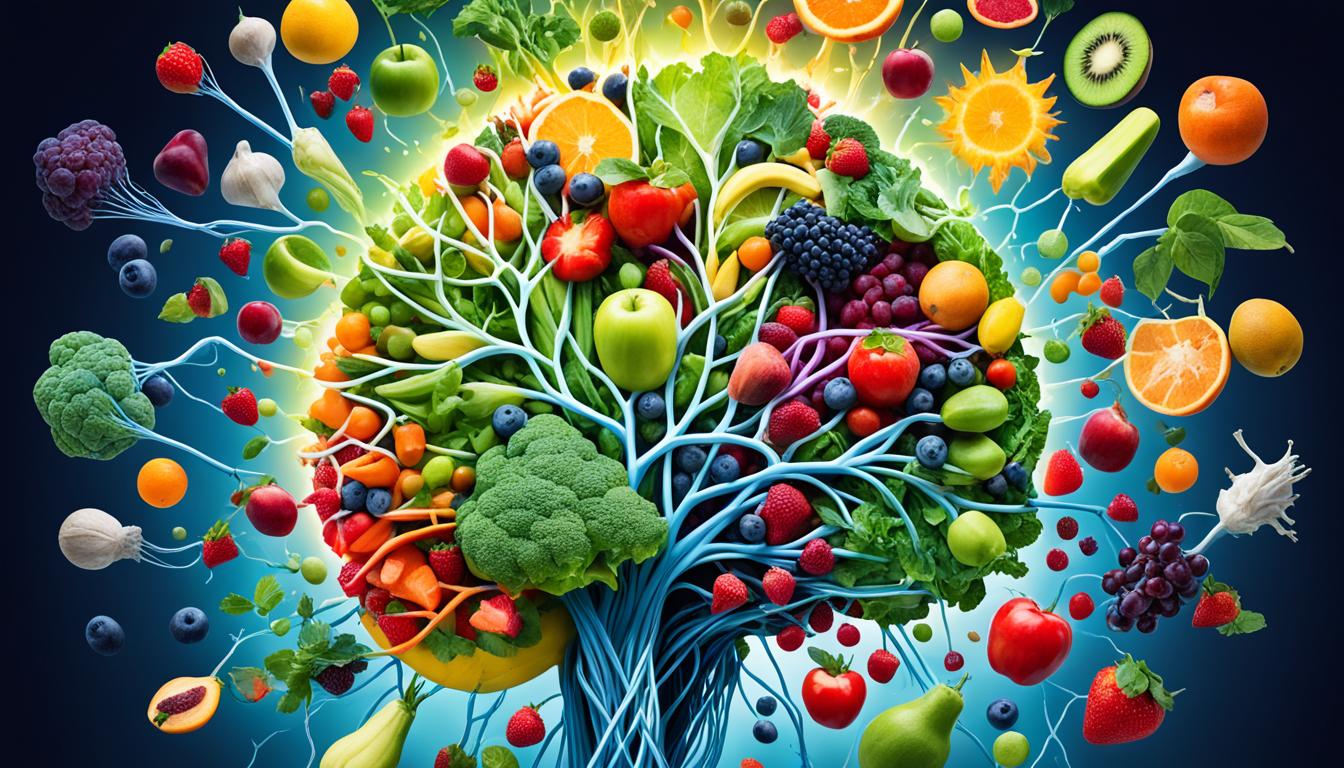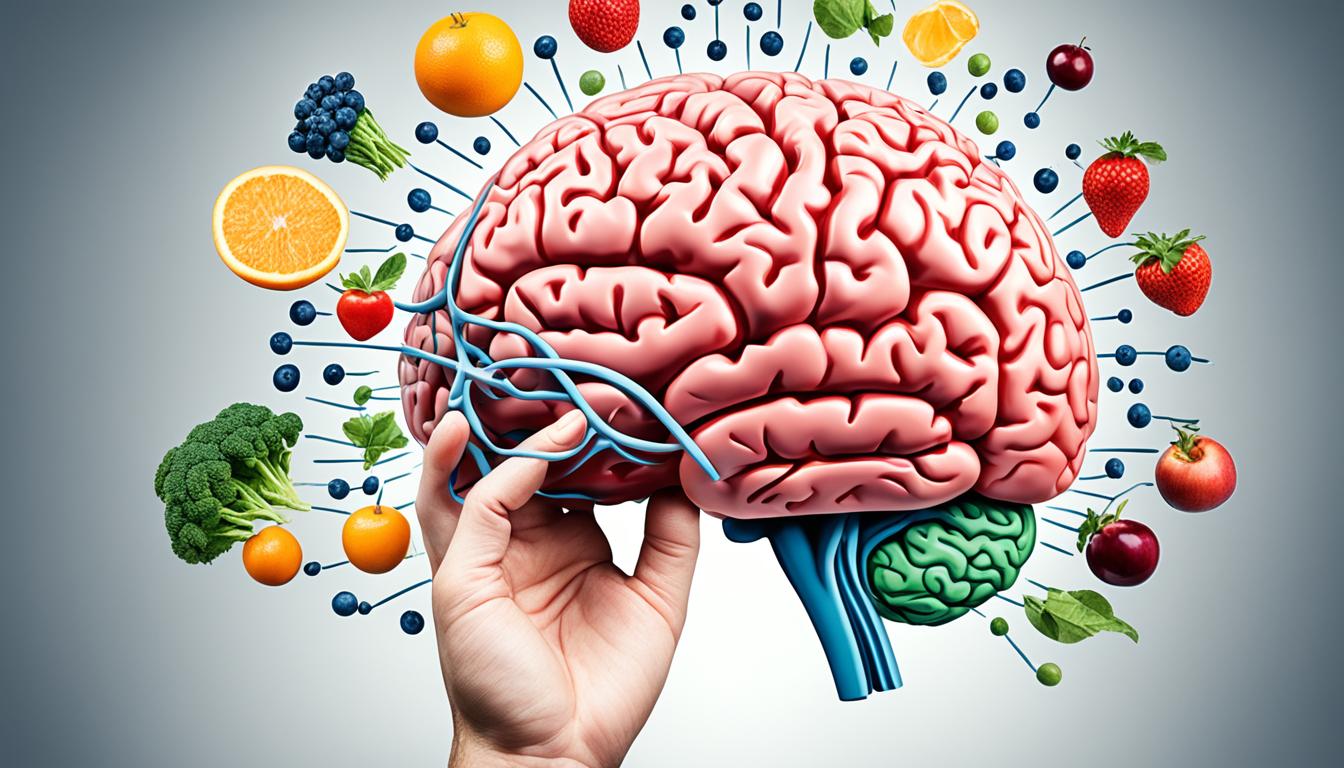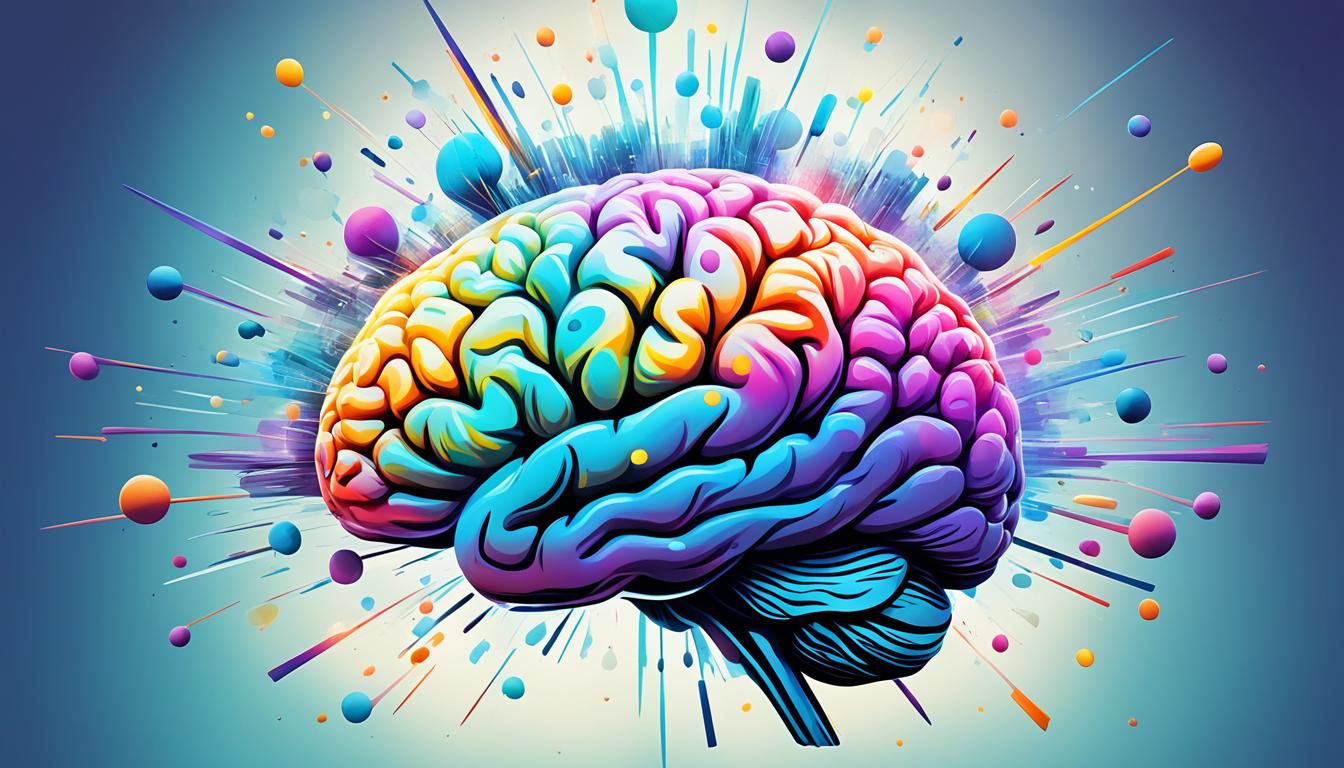Your brain is an extraordinary organ that demands a *balanced diet* for optimal health and function. Emphasizing Brain Health and Nutrition boosts cognitive improvement and supports memory enhancement and neuroprotection. By focusing on a holistic diet, exercise, sleep, and lifestyle, you can enhance your mental clarity and support brain health.
A diet rich in essential nutrients shields and repairs neurons, improving memory and focus. Neglecting proper nutrition can lead to fatigue, impaired decision-making, and increased stress, potentially worsening depression and anxiety. Adopting Mediterranean-inspired meals can lower chronic disease risks while boosting cognitive function and emotional balance.
Studies show that eating a variety of foods, loaded with probiotics and prebiotics, is key to a healthy gut microbiome, which supports brain health. Mindful eating habits are crucial for maintaining energy levels and making smart food choices. By focusing on what you eat, you can improve cognitive function, emotional resilience, and overall lifestyle.
Key Takeaways
- A balanced diet is crucial for brain health, affecting neurotransmitter function and psychological well-being.
- Specific nutrients boost neuron growth, enhancing memory and emotional resilience.
- Food choices greatly impact cognitive function and decision-making skills.
- Hydration is essential for maintaining brain health and ensuring optimal function.
- Mindful dietary habits lead to better cognition and emotional stability.
The Importance of Brain Health
Understanding brain health is key to keeping our cognitive abilities sharp throughout life. The brain is vital for managing thought, movement, and emotions. It heavily depends on the complex interactions between neurons and neurotransmitters. Each thought and action stems from a detailed network of these cells communicating well.
Understanding Brain Function
Brain function covers the complex processes and activities that let us think, learn, and perform tasks. Neurons, the brain’s basic units, send and receive signals for communication. If these neurons get damaged, cognitive decline can happen. For the best brain health, it’s crucial to know how to care for these essential cells, as they don’t easily regenerate.
The Role of Neurons and Neurotransmitters
Neurotransmitters act as the brain’s chemical messengers, sending signals from one neuron to another. This communication is crucial for keeping cognitive functions like memory, learning, and emotional balance. Eating well and living healthily supports these neurons and boosts brain health, making it more resilient against age-related issues. Studies show that eating a diet rich in nutrients, such as the MIND Diet, can slow down cognitive decline and protect against Alzheimer’s disease.

Brain Health and Nutrition
Your diet is key to keeping your cognitive function sharp as you age. Studies show a strong connection between diet and cognitive function. A balanced diet can boost memory and lower the risk of cognitive decline. The Mediterranean-DASH Diet Intervention for Neurodegenerative Delay (MIND diet) suggests eating this way can make you feel 7.5 years younger. Choosing the right foods can significantly improve your brain health.
The Link Between Diet and Cognitive Function
It’s crucial to understand how your diet affects your brain. A study with nearly 182,000 participants found that eating a diet full of fruits, vegetables, lean proteins, and healthy fats helps your brain function better. On the other hand, eating too much processed food, saturated fats, and sugar can harm your mental abilities.
Key Nutrients for Brain Health
To keep your brain healthy, make sure to eat foods rich in key nutrients. Omega-3 fatty acids, antioxidants, vitamins, and minerals are crucial for brain health. Older adults may struggle to get enough of these nutrients, so supplements or fortified foods can help. Starting healthy eating habits early in life is key for ongoing brain support.

Brain-Boosting Foods to Consider
Incorporating specific foods into your diet can greatly improve your brain health. Many of these foods are loaded with nutrients like omega-3 fatty acids and antioxidants. These nutrients are crucial for cognitive function and memory. Adding these tasty options to your meals can enhance your brain’s performance.
Fatty Fish and Omega-3 Fatty Acids
Fatty fish such as salmon, mackerel, and sardines are famous for their omega-3 fatty acid content. These nutrients are vital for learning, memory, and cognitive function. Research indicates that regular intake of omega-3s can prevent cognitive decline and fight depression symptoms. Including fatty fish in your diet a few times a week is an easy way to boost your brain power.
The Benefits of Berries
Berries, especially blueberries, are full of antioxidants that benefit brain health. These antioxidants fight oxidative stress and enhance communication between brain cells. Eating blueberries regularly can help slow down brain aging, making them a tasty and effective addition to your diet.
The Power of Leafy Greens
Leafy greens like spinach, kale, and broccoli are packed with vitamins and minerals that support brain health. Broccoli, for instance, is rich in vitamin K, which aids in better memory and cognitive skills. Adding a variety of leafy greens to your meals ensures your body gets the nutrients it needs for optimal brain function.

The Impact of Physical Activity on Brain Health
Regular physical activity has a profound effect on both exercise and brain health. Those who are active experience fewer cognitive declines than those who are not. Exercise does more than just build muscle; it’s key in improving memory and cognitive functions.
Exercise Improves Memory and Learning
Studies reveal that physical activity boosts cognitive functions like memory and learning. It encourages neurogenesis, the creation of new neurons, and increases brain-derived neurotrophic factor (BDNF). BDNF is vital for maintaining neural connections, which impacts cognitive performance. Higher BDNF levels are linked to better memory, making exercise crucial for brain health.
Physical Activity Guidelines to Follow
The U.S. Department of Health and Human Services suggests adults aim for 150 minutes of moderate or 75 minutes of vigorous physical activity weekly. Adding strength-training exercises two or more times a week can boost benefits further. Owning a pet, especially a dog, also encourages more walking, helping meet daily activity goals. Following these guidelines can lower the risk of cognitive decline, improving both physical and mental health.

The Role of Sleep in Cognitive Performance
Quality sleep is crucial for boosting your cognitive abilities. It’s essential to get enough rest to maintain focus and concentration, which are key for learning effectively. Insufficient sleep can impair your short-term cognitive functions significantly.
How Sleep Affects Memory and Learning
Sleep is essential for memory consolidation, problem-solving, creativity, and emotional processing. Poor sleep quality reduces your ability to process information and make rational decisions. People with sleep disorders often feel extremely tired and have trouble concentrating, making daily tasks more challenging.
Poor sleep is linked to cognitive decline and an increased risk of Alzheimer’s disease. Just one night of sleep loss can raise beta amyloid levels in the brain, worsening cognitive decline. Research suggests that seven hours of sleep per night is ideal for cognitive function. Sleeping too little or too much can negatively impact your cognitive abilities.
Tips for Getting Better Sleep
Using effective sleep tips can greatly improve your sleep quality. A consistent sleep schedule helps improve sleep quality. A quiet, dark bedroom and avoiding caffeine before bed also promote better sleep.
Being aware of your sleep habits can significantly improve your memory and cognitive performance. Adopting these tips can lead to restful sleep, enhancing your mental clarity and resilience for daily challenges.
For more information on maintaining mental clarity through effective sleep strategies, check out this guide.
Stress Management for a Healthier Brain
Understanding stress is key to keeping your brain health in check. Stress comes in various forms, each affecting your brain differently. Chronic stress, marked by constant cortisol release, harms your cognitive and emotional well-being. Knowing this can help you manage stress better and boost brain resilience.
Understanding the Effects of Stress
The body’s stress response releases hormones like cortisol and adrenaline, raising heart rates and blood pressure. Prolonged stress leads to digestive issues, weight gain, and increased anxiety. It can also change your eating habits, leading to a diet high in fats and calories, which is bad for brain health. A healthy diet is vital in fighting stress’s negative effects. For more on healthy eating, check out healthy aging strategies.
Strategies to Manage Stress Effectively
It’s crucial to manage stress to protect your stress and brain health. Mindfulness, through meditation and deep breathing, helps reduce stress. Exercise not only lowers stress but also boosts energy and mood. Aim for 30 minutes of aerobic activity a few times a week for best results.
Good sleep habits are also key in managing stress. They help your brain recover and stay sharp. Social support from friends and family is also vital. What you eat can affect stress levels too. Foods rich in omega-3s, fiber, and antioxidants help fight stress. Snacks like almonds and avocados are great for this.

By focusing on these areas, you can enhance your cognitive abilities and keep your brain healthy and resilient.
Hydration and Brain Function
Optimal hydration is essential for your health, particularly for brain function. Water constitutes about 60% of the adult body, underscoring its critical role in various bodily processes. Dehydration can cause cognitive problems, affecting attention, executive function, and motor coordination. It’s crucial to identify dehydration signs that impact your brain and hydration health.
The Importance of Staying Hydrated
Hydration is vital for cognitive function, ensuring your brain works efficiently. A mere 2% loss in body mass due to dehydration can significantly impair mental performance. This is especially true for older adults, who might not feel thirsty when dehydrated. For those over 65, blood tests are the most accurate way to measure hydration levels, as aging can reduce thirst sensitivity.

Signs of Dehydration on Brain Health
Identifying dehydration can be tricky. Signs include trouble focusing and slower reaction times. Studies show that drinking water before a cognitive test can improve reaction times by 14%. Both women and men face cognitive challenges with inadequate hydration, but women are more affected in attention and processing speed.
Hydration is crucial for maintaining cognitive health, especially with aging. Women should aim for 2 to 2.7 liters and men for 2.5 to 3.7 liters of fluids daily, but individual needs can vary. Increased sweating or physical activity demands more water. Adding hydrating foods to your diet can also boost hydration. For tips on staying hydrated, check out mindfulness for focus and awareness alongside daily hydration practices.
Social Connections and Cognitive Health
Strong social connections are crucial for boosting your cognitive health. Interacting with family, friends, and community members can greatly improve memory and brain function. These interactions not only uplift your emotional state but also help prevent cognitive decline.
The Benefits of Social Engagement
Social engagement acts as a shield against cognitive decline, especially for seniors. Studies reveal that those who are active in social activities tend to maintain better cognitive abilities. These connections offer emotional support, alleviate loneliness, and boost memory and reasoning. Engaging in deep conversations and shared activities is beneficial for your brain. It’s essential to cultivate these relationships for a healthier life.
How Relationships Impact Memory and Longevity
Building and maintaining relationships profoundly affects your memory and longevity. Research indicates that robust social ties are linked to a 50% higher chance of survival. People with strong social connections often enjoy better cognitive health, lowering the risk of Alzheimer’s disease. Consider joining community programs or hobbies with others to enhance your cognitive abilities and life quality.
Supplements for Brain Health
Enhancing brain health often involves considering various supplements aimed at boosting cognitive function. These range from omega-3 fatty acids to vitamins and herbal extracts. Understanding these supplements can aid in making informed decisions for your brain health.
Popular Brain Support Supplements
Many adults over 50 turn to brain supplements to support their cognitive functions. While some research suggests potential benefits, the effectiveness of certain supplements is still debated. For example, large studies have not consistently shown that omega-3 supplements prevent dementia, although they may help those with the APOE4 gene mutation. Vitamin E and ginkgo biloba have not proven effective in preventing cognitive decline, according to various studies.
Ginseng and similar supplements lack compelling evidence for cognitive enhancement. However, curcumin has shown promise in improving memory and reducing protein buildup in the brain, based on limited studies. CDP-choline, a prescription drug in Europe, may also help improve memory in the elderly with existing issues.
It’s important to note that combining different memory supplements can be risky. Side effects may occur, especially when mixed with other medications. A diet rich in fruits, vegetables, whole grains, and fish is usually sufficient for most healthy individuals to support their brain health.
Consulting Your Healthcare Provider
Healthcare advice emphasizes consulting with a healthcare provider before starting any new supplements, especially if you have medical conditions or take medications. Low levels of essential nutrients like magnesium, vitamin D, and B vitamins can significantly affect cognitive health. Supplementing these may help alleviate symptoms of brain fog, including memory trouble and lack of focus. Vitamin D’s role in reducing depressive symptoms underscores its importance for overall cognitive wellness.

Regular dialogue with your healthcare provider ensures that your approach to brain supplements meets your individual health needs and enhances your cognitive well-being safely.
Conclusion
Effective brain health strategies are essential for boosting cognitive function and enhancing neurological well-being. This article highlights a holistic approach that covers nutrition, physical activity, sleep, stress management, hydration, social connections, and supplements. For instance, diets rich in omega-3 fatty acids from fatty fish can greatly benefit brain health. A balanced diet ensures you meet essential nutrient needs.
It’s crucial to understand how lifestyle affects brain function. Regular physical activity, good sleep habits, and strong social ties significantly impact cognitive performance. Recognizing the interconnectedness of these elements leads to better memory and cognitive longevity.
By incorporating these holistic brain health strategies into daily life, you can safeguard and enhance your brain’s health. These practices not only improve cognitive function but also support overall well-being through life’s ups and downs.
FAQ
How does nutrition impact brain health?
What are some brain-boosting foods I should include in my diet?
How does physical activity contribute to cognitive function?
Why is sleep important for brain health?
What effect does stress have on cognitive function?
How can I ensure I’m staying hydrated for optimal brain function?
What role do social connections play in cognitive health?
Are brain health supplements effective?
Source Links
- Fuel Your Mind: Cognitive Function and Mental Health – Acenda – https://acendahealth.org/fuel-your-mind-cognitive-function-and-mental-health/
- Foods & Habits That Fuel Your Brain Health – https://www.ccl.org/articles/leading-effectively-articles/foods-that-fuel-your-brain/
- The Ultimate Brain-Boosting Foods: Fuel Your Mind – https://www.abbeycroft.org.uk/the-ultimate-brain-boosting-foods-fuel-your-mind/
- Eating for Brain Health | BrightFocus Foundation – https://www.brightfocus.org/alzheimers/article/eating-brain-health
- Pillar Nutrition – https://healthybrains.org/pillar-nutrition/
- Nutrition and cognitive health: A life course approach – https://www.ncbi.nlm.nih.gov/pmc/articles/PMC10083484/
- Better Nutrition Can Lead to Better Brain Health, GSA Publication Shows – https://www.geron.org/News-Events/GSA-News/Press-Room/Press-Releases/better-nutrition-can-lead-to-better-brain-health-gsa-publication-shows
- New research shows ‘profound’ link between dietary choices and brain health – https://www.sciencedaily.com/releases/2024/04/240424111638.htm
- ‘Balanced’ diet most protective for mental health, cognitive function – https://www.medicalnewstoday.com/articles/a-balanced-diet-is-better-than-a-vegetarian-one-in-supporting-brain-health
- 11 Best Foods to Boost Your Brain and Memory – https://www.healthline.com/nutrition/11-brain-foods
- 15 “Brain Foods” That May Help Preserve Your Memory – https://www.unitypoint.org/news-and-articles/15-brain-foods-that-may-help-preserve-your-memory
- Physical Activity Boosts Brain Health – https://www.cdc.gov/physical-activity/features/boost-brain-health.html
- Collaborative effects of diet and exercise on cognitive enhancement – https://www.ncbi.nlm.nih.gov/pmc/articles/PMC3258096/
- Physical Activity and Brain Health – https://www.ncbi.nlm.nih.gov/pmc/articles/PMC6770965/
- How Lack of Sleep Impacts Cognitive Performance and Focus – https://www.sleepfoundation.org/sleep-deprivation/lack-of-sleep-and-cognitive-impairment
- Impact of sleep duration on executive function and brain structure – Communications Biology – https://www.nature.com/articles/s42003-022-03123-3
- Stress and Health – https://nutritionsource.hsph.harvard.edu/stress-and-health/
- Stress-Reducing Foods – https://www.webmd.com/diet/ss/slideshow-diet-for-stress-management
- Thriving Together Series: Nutrition for Better Sleep and Stress Management – Center for the Advancement of Well-Being – https://wellbeing.gmu.edu/thriving-together-series-nutrition-for-better-sleep-and-stress-management/
- Can dehydration impair cognitive function? | Cognitive Vitality – https://www.alzdiscovery.org/cognitive-vitality/blog/can-dehydration-impair-cognitive-function
- Dr. Fotuhi | Best Neurologist | Author | Speaker – https://neurogrow.com/water-your-brain/
- Cognitive Health and Older Adults – https://www.nia.nih.gov/health/brain-health/cognitive-health-and-older-adults
- Social connections as determinants of cognitive health and as targets for social interventions in persons with or at risk of Alzheimer’s disease and related disorders: a scoping review – https://www.ncbi.nlm.nih.gov/pmc/articles/PMC11058077/
- Brain Supplements: What Works, What Doesn’t – https://www.webmd.com/brain/ss/slideshow-brain-supplements
- 6 Helpful Supplements for Brain Fog – https://www.healthline.com/nutrition/vitamins-for-brain-fog
- Brain foods: the effects of nutrients on brain function – https://www.ncbi.nlm.nih.gov/pmc/articles/PMC2805706/
- Nourishing the Mind: How Nutrition Fuels Brain Health – Celebrating Life Community health center – https://www.clchc.org/nutrition-for-brain-health/
- Balanced diet linked to better brain health and cognition, large-scale study shows – https://www.news-medical.net/news/20240403/Balanced-diet-linked-to-better-brain-health-and-cognition-large-scale-study-shows.aspx


